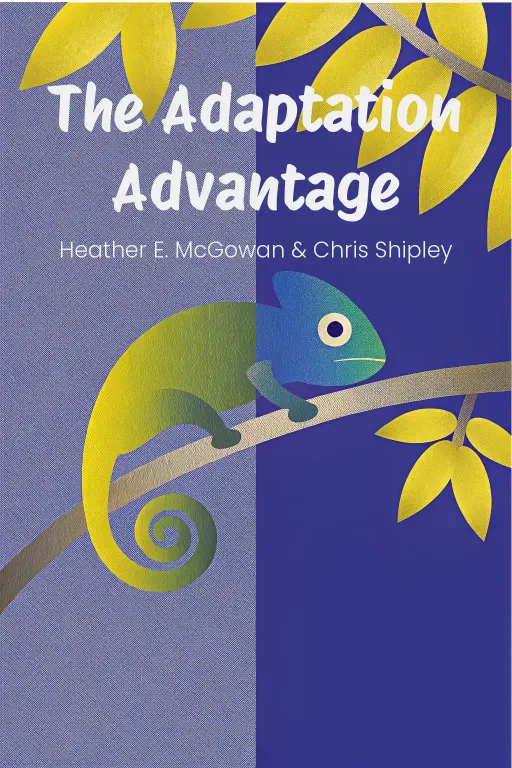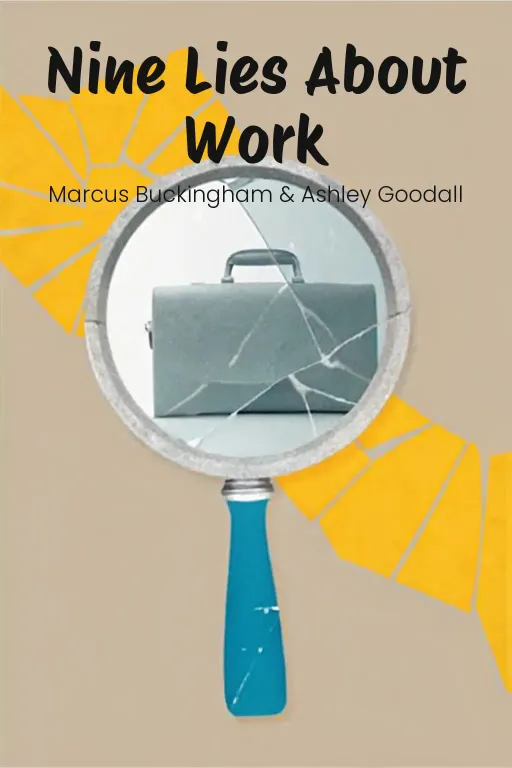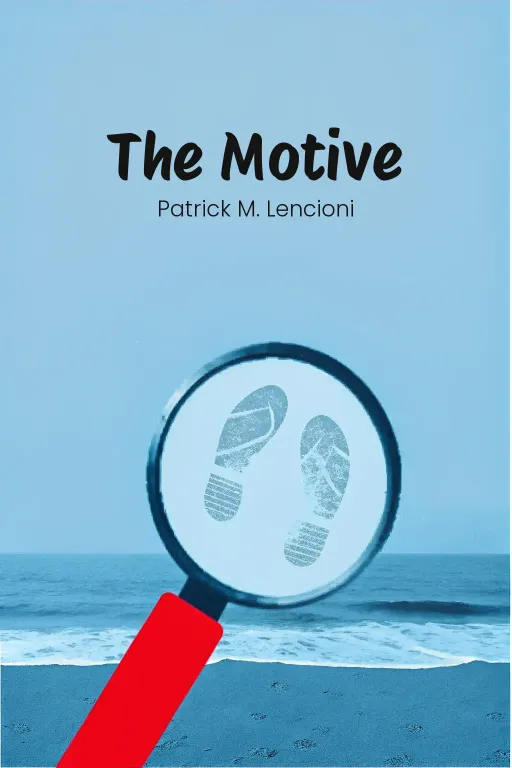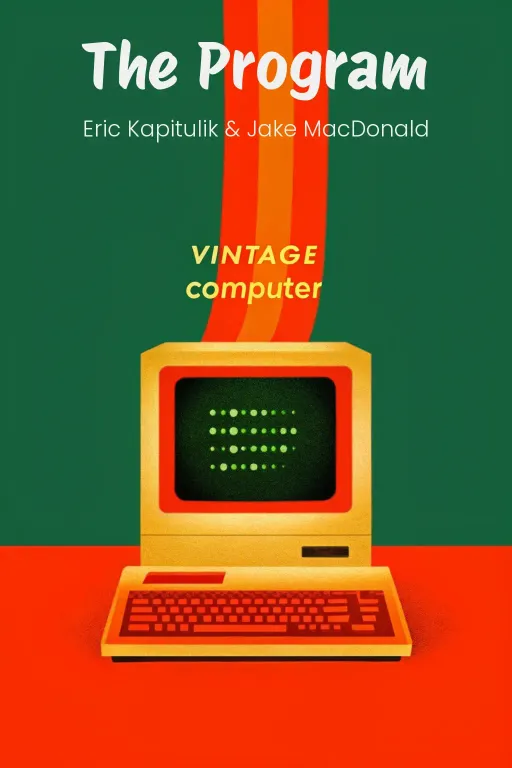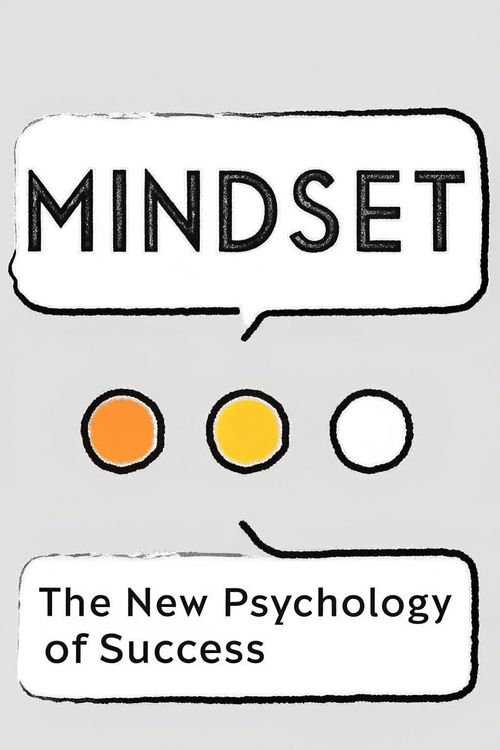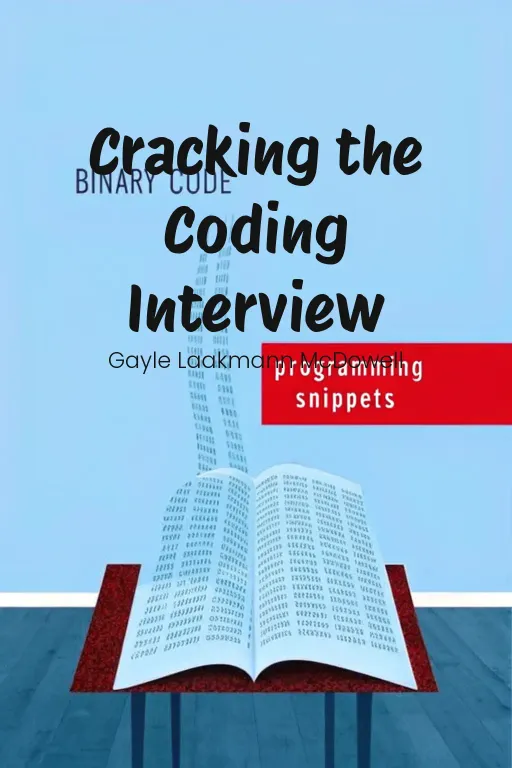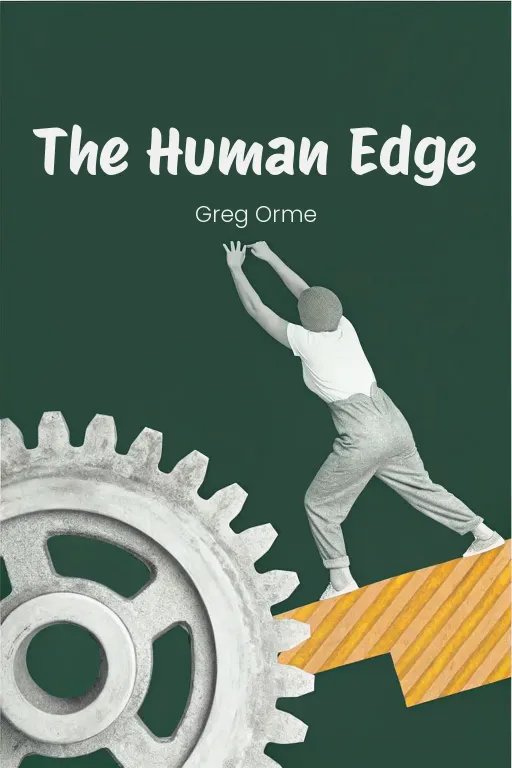
Adapt & Thrive: Skills to Future-Proof You
Podcast by Wired In with Josh and Drew
Let Go, Learn Fast, and Thrive in the Future of Work
Introduction
Part 1
Josh: Hey everyone, welcome to the show! Let's kick things off with a question: How much of who you are is wrapped up in what you “do” for a living? Are you an engineer, a teacher, a marketer? But then, what happens if that job title just… isn't relevant anymore? Drew: Right, Josh, and nobody wants to sit around pondering their professional identity, to be honest. But maybe we kinda have to. That's basically the whole idea behind The Adaptation Advantage, the book we're diving into today. Josh: Precisely. Heather McGowan and Chris Shipley argue that, in this crazy world where technology, culture, careers—everything—is changing at warp speed, adaptability isn't just a “nice to have”. It’s crucial. They say it starts with ditching those fixed ideas about who we are and really leaning into lifelong learning, empathy, and creativity to stay ahead of the curve. Drew: Okay, so my carefully constructed "professional self" is about to get a total revamp. Got it. But what about the bigger picture, you know? How do we navigate this tsunami of change in the real world? Josh: That's exactly what we're talking about today. We're going to hit on three main themes from the book. First, we'll explore why adaptability is like your ultimate superpower in this age of constant change. Then, we'll tackle how redefining your professional identity can unlock major transformation and new opportunities. And finally, we'll look at what leaders and organizations need to do to actually thrive amidst all this uncertainty. Spoiler alert: It's not just about keeping up with the latest gadgets; it's about culture and mindset, too. Drew: So, if I'm hearing you right, this episode is basically a survival guide for disruption, but also a roadmap for actually leading the charge. Alright, let's jump in and unpack this.
Adaptability in the Face of Change
Part 2
Josh: So, picking up from redefining professional identities, to really understand adaptability, we've got to recognize how quickly and profoundly the world is changing. I mean, we're talking about tech advancements, cultural shifts, even the way we think about work itself. It's all evolving faster than ever before. Drew: Yeah, and isn't it wild that the smartphone I use to complain about traffic on Twitter has more processing power than what NASA had to send astronauts to the moon? I mean, progress is clearly great for space exploration and my ability to live-tweet frustrations, but at the same time, isn't this speed of change a bit overwhelming for, well, most of us? Josh: It definitely “can” feel overwhelming, but the book actually argues that this acceleration opens up opportunities if we know how to adapt. Take automation and AI, for instance. These technologies are transforming jobs, absolutely—you know, from flipping burgers to reading legal briefs. McGowan and Shipley compellingly argue that it is less about the tech “taking” over and more about how we pivot. Drew: So, instead of frantically Googling, "Will AI steal my job?” we’re supposed to ask, "How can I work with AI?" Josh: Exactly! Look at IBM’s former CEO Ginni Rometty, for example. She pointed out that AI isn't just tweaking industries – it could alter every job in the next decade. But that’s not a death sentence for us humans. McGowan and Shipley argue that this is the moment to really focus on what makes us irreplaceable, things like creativity, empathy, and collaboration. Those are skills no algorithm can truly replicate. Drew: Of course, until ChatGPT writes a stand-up comedy set that’s actually funny. I take your point, though. But it's not just the tech that's changing, right? The workforce itself looks—and thinks—differently now. We've got generational turnover, cultural shifts, even how people define success seems pretty different, doesn't it? Josh: Absolutely. And this is where cultural adaptation really matters. Globalization and diversity are really front and center. Uh, for example, did you know that nearly 40% of children in the U.S. are born outside of marriage? Or that discussions around non-binary gender identities are reshaping so much about how we approach inclusion in the workplace? These aren't just numbers; they're really signaling a need for workplaces to rethink how they support employees. Drew: Right, because organizations that handle diversity well aren't just ticking HR boxes. There's a clear competitive edge to getting this right. I mean, to thrive in this new environment, emotional qualities like cultural humility and empathy seem kind of non-negotiable. Josh: Spot on. McGowan and Shipley stress emotional intelligence as being central to collaboration in any future-focused workplace. And, case in point: Google's Project Aristotle. They studied a bunch of their most effective teams and found that psychological safety—a culture where people feel supported and valued when sharing ideas or voicing concerns—was the biggest factor in team success. And who creates psychological safety? Leaders with high emotional intelligence do. Drew: Hold on, let’s unpack that. If I'm a manager, you're telling me that instead of micromanaging or trying to out-think my team, I should focus on building trust and making people feel safe to disagree with me? Josh: Yes! That’s precisely why empathy and emotional intelligence aren’t “nice-to-have” leadership skills – they're essential. Machines can process data, but humans need to manage emotions. Think of leaders as gardeners, creating an environment where creativity and collaboration can actually thrive. Sounds like something robots still can't do, right? Drew: Okay, so we’ve established that it’s a high-stakes world of constant change. But rewiring ourselves to think of adaptability as a survival skill sounds... exhausting. Can’t I just stay in my lane, and do me? Josh: That is really the mindset McGowan and Shipley challenge – the idea that learning and growth stop once we enter a career. Lifelong learning isn’t a luxury anymore; it’s really essential. The authors actually mention middle-skill jobs, like roles in logistics or administrative work, that are disappearing faster because of automation. So, if people in those positions don't actively pivot, they risk being left behind. Drew: So, the old "go to school, get a job, stay there forever" playbook is toast? Josh: Toast! That’s why companies like AT&T are offering tools like career intelligence dashboards, showing employees what skills they’ll need in the years ahead. It’s proactive, not reactive. But here’s the thing: it’s not just about keeping up with new tech. It’s about completely rethinking how we view our careers, and we need to make learning and unlearning constant parts of life. Drew: “Unlearning,” huh? That sounds about as fun as going back and re-taking middle school. Josh: It’s not about redoing old lessons. It’s about letting go of practices or assumptions that no longer make sense. For instance, if you were great at managing teams in the office, you’ll need a whole new skillset now that half the team’s working remotely. Rigid routines just won't cut it anymore. Drew: Alright, I’ll give them this—it’s inspiring to think of adaptability as a mindset rather than just scrambling to keep up. But where do we draw the line? Because if I’m constantly reinventing myself, where’s the stability? Josh: That’s where uniquely human traits come in—this isn’t about erasing your identity; it’s about expanding it. McGowan and Shipley advocate for redefining stability. Instead of a fixed role or title, think of stability as being open to change and growth. This quote from Dan Gilbert really sums it up perfectly: “Human beings are works in progress who mistakenly think they’re finished.” Drew: So, to thrive in this chaos, we’re leaning into flexibility, creativity, and a dash of trust that the process is, well, working. That's... a tough mindset shift, but kind of empowering too.
Redefining Occupational Identity
Part 3
Josh: So, in The Adaptation Advantage, one of the most transformative ideas, I think, is about redefining our occupational identity. It's not just about surviving change, but rethinking how we define ourselves beyond job titles, you know? We're going to dive into why fixed labels can hold us back, the advantages of having a more fluid, purpose-driven identity, and how that “really” connects to workforce adaptability and even societal changes. Drew: Right, so we're ditching the old labels. Goodbye “Drew, sarcastic podcast host”—although, is that “really” a label I want to get rid of? Josh, why do these labels even matter so much? What makes them the bad guy all of a sudden? Josh: Well, traditionally, job titles gave us stability and clarity. "What do you do?" "I'm a teacher, a nurse, whatever." People understood immediately. It gave us a sense of identity and community. But here's the thing: those labels are static, and our work is anything but. Drew: So, labels are kind of like those old Blackberry phones. Useful back in the day, but now they can't keep up with, you know, what we actually need. Josh: Exactly. If you're stuck on “engineer” or “reporter,” what happens when that role evolves or even disappears? McGowan and Shipley talk about the decline of linear careers—school, job, retirement? That’s just not the reality anymore. Drew: Right. Because, these days, everyone's got a side hustle or they're pivoting in their career, especially after, say, an economic downturn, or... a global pandemic, maybe? Josh: Exactly! And those disruptions show how dangerous it is to be limited to one fixed role. The book says we need to shift from “What's my job title?” to “What value do I bring? What skills do I have?" And that's where the idea of a fluid occupational identity comes in. Drew: So, shedding the title is step one. But doesn't that lead to the big, existential question? If I'm not my job, um, who am I? How do I define myself? Josh: That's where purpose comes in. McGowan and Shipley suggest defining yourself by your passions, your core values, and the skills you can use in different areas. Your purpose isn't on your business card. It's about what energizes you and where you can make an impact. Drew: Like a superhero, right? It's not about Batman's billionaire status or his gadgets, it's that “I fight for justice” mindset; that's his true identity. Josh: Precisely! It’s discovering what drives you. Chris Shipley, the author herself, started as a journalist, but when that world changed, she focused on her storytelling and analytical skills to consult for startups. And over time, she worked with thousands! It proves that focusing on skills and purpose, rather than a job title, can open up completely new doors. Drew: So, instead of “I'm a journalist,” it's “I'm a storyteller who connects ideas and people.” That focus on skills keeps your options open. Josh: Exactly. And it's not just individuals. This fluidity ties into workplace adaptability. The book says that identifying those transferable skills, like problem-solving, or leadership, makes workers more resilient. They can cross industries when one sector is disrupted. Drew: Okay, but let's be honest here. Telling people they have all these untapped skills sounds great, but—how do you actually figure out what they are? Josh: Well, that’s where self-reflection comes in. McGowan and Shipley suggest asking not, “What's my job?” but “What motivates me? Where are my strengths?" You can use assessments or just reflect on past projects. For example, someone who thinks of themselves as "just a bank teller" might realize their customer service and problem-solving skills could also work in retail or event planning. Drew: So, it's like digging up treasure you didn't even know you had. But where's the map? Josh: The map comes with curiosity and trying new things! Annalie Killian, a leadership expert mentioned in the book, says that we discover our purpose over time—through iteration and trial. Think of it as a process, not an epiphany. Drew: Okay, that's a little less intimidating. But I'm still wondering, how does all this rethinking individual purpose connect to the bigger cultural shifts happening? Josh: It's deeply connected. Just as individuals have to be flexible, society is rethinking old norms. For example, recognizing non-binary gender identities is reshaping cultural expectations and workplace policies. It’s inclusive, and it parallels the need for fluidity in our professional identities. Drew: And workplaces that don't adapt... they're just setting themselves up to fail, right? Josh: Exactly! The book says the future belongs to the adaptable—individuals and organizations! Companies that allow employees to pivot, experiment, and grow, will succeed. It all comes back to adaptability.
Human-Centric Leadership and Organizational Agility
Part 4
Josh: So, moving from the idea of fixed identities to, like, unlocking a dynamic, learning mindset, let’s zoom in on human-centric leadership and how organizations become more agile. Redefining what you do isn't the whole story. If folks need to adapt to survive, what about the companies they're working for? And, crucially, what should leaders be doing to guide their teams through all this change? Drew: Okay, so we're diving into leadership now, huh? Let me guess, those old-school, "my-way-or-the-highway" bosses with their iron grip and rigid five-year plans are officially dinosaurs, am I right? Josh: You nailed it! Leadership has totally evolved. Now, you see the best leaders with authenticity, emotional intelligence, and vulnerability. Qualities that, honestly, resonate much more when things feel uncertain. Take Carol Leaman, CEO of Axonify, who McGowan and Shipley talk about. She's a champion of radical transparency. She doesn't just shout the company's wins from the rooftops; she openly shares the losses and even lets employees grill her with unfiltered questions in open forums. It's that kind of openness that builds trust and a sense of safety among the team - things leaders can’t afford to ignore in a rapidly changing workplace. Drew: Hold on a sec. I get the idea of "radical transparency," but I can also picture some scenarios where that could go south pretty quick. What happens when you have to break some bad news? Could being that open ever backfire on you? Josh: That's a valid point. But you know, when transparency is paired with accountability, it's more likely to build resilience, not tear it down. Leaman's method works because it's genuinely her being authentic. By opening up about both successes and failures, she’s showing her team that setbacks are okay, as long as they’re used for learning and growth. When you create that kind of atmosphere, people feel empowered to pitch bold ideas or take calculated risks, knowing they won't be penalized if things don't go as planned. Drew: So, transparency is like fertilizer and trust is the harvest. Looks like leaders are gardeners now, huh? Josh: <Laughs> That's a surprisingly apt analogy! Modern leaders aren't dictators barking orders; they're facilitators. Their main thing is to nurture a workplace where individuals feel respected, supported, and, most importantly, safe enough to innovate. Drew: Alright, so we've built the foundation with leadership qualities – emotional intelligence, trust-building, the whole shebang. But you brought up "psychological safety," and I know you're itching to expand on that. What's the big deal, and why is everyone hyping it up so much right now? Josh: Psychological safety is really a cornerstone of team performance. McGowan and Shipley bring up Google’s “Project Aristotle," which was all about figuring out what makes teams tick. They found that the number one thing separating high-performing teams was psychological safety. It's basically, can employees speak up, admit mistakes, and float new ideas without fearing embarrassment or getting slammed? Drew: Wait a minute. So it’s not necessarily the smartest people or the top performers who make a team successful, but the ones who feel most comfortable throwing their ideas out there? Josh: Exactly! Picture this: You've got a team packed with the world's brightest minds, but every time someone gets an idea, they keep quiet, worried they'll be laughed at, dismissed, or just ignored. It doesn't matter how talented each person is; if the team can't collaborate or trust each other, they're sunk. But when everyone feels empowered to speak up, creativity explodes, debates become productive, and solutions start pouring out—even when things get really tough. Drew: Alright, but let’s not ignore a potential problem here. What about power dynamics? If I’m the one calling the shots, people might think twice before challenging me or disagreeing, regardless of how much "psychological safety" I think I've built. Josh: That's such a valid point. Unchecked power “really” can mess with psychological safety. McGowan and Shipley actually cite Dr. Dacher Keltner’s “cookie monster study” here. Turns out, when people were put in charge during collaborative tasks, they tended to lose empathy, hoard resources, and ignore fairness within the group, which that “final cookie” situation proved. This shows that leaders need to actively counteract this empathy erosion through self-awareness, feedback, and just making a conscious effort. Drew: So, leadership is “really” a blend of power and emotional intelligence, right? If you lose control of one, you're probably headed for a crash landing. Alright, got it. But let’s shift gears now. Strong leaders are essential, of course, but what about the companies themselves? How do organizations, whether big or small, navigate all this constant change? Josh: Adaptability is key for both people and companies. The book spends a lot of time on adaptive organizations, pointing to companies like Apple and AT&T as examples of how to sync up your culture and systems to stay ahead of the game. Take Apple, for instance. After the iPod blew up, they could have easily coasted on that success. But their leaders were smart enough to see the potential of smartphones and took a huge leap with the iPhone. Drew: Right – basically risking their golden goose back then. That’s a bold move. I'm guessing they didn't exactly get a lot of congratulatory pats on the back. Josh: Definitely. It's a perfect example of leaders challenging the status quo – something Jim Kouzes and Barry Posner call out as crucial for great leadership, and they’re cited in the book. Apple’s choice to pivot involved risks, but it was all part of their long-term vision. And it paid off big because they fostered a culture that welcomed experimentation and innovation, despite the fact that it meant disrupting their own winning formula. Drew: Okay, but bold moves aren’t enough on their own. You need a solid foundation under you, right? What about a company like AT&T? How does that fit into building resilience? Josh: AT&T is all about making sure their people stay relevant. They rolled out a “career intelligence dashboard” to help employees make sense of fast-moving industry trends. How? By helping them identify in-demand skills and even predicting salary ranges for emerging roles. So, say you’re in customer service and you want to switch to project management or data analytics – the dashboard gives you personalized learning to make it happen. Drew: So, they’re not just telling employees, "Good luck figuring out the future!" but actually providing a roadmap for growth. Makes sense, but how effective is that across a huge company? Josh: It's a huge stride toward resilience, both for the individual and the company as a whole. Foresight like this lets companies flip disruption into opportunity. But AT&T isn’t only focused on technical skills – they also emphasize purpose and culture. Here is where Simon Sinek’s "start with why" “really” comes into play: when companies connect their goals to a strong mission, employees feel invested not just in their jobs, but in the bigger picture. Drew: So, it’s more than just a paycheck or keeping up with the latest trends – it’s about having a sense of meaning in all the chaos? Josh: Exactly. Apple and AT&T's success shows that if you balance innovation, agility, and purpose, you won't just weather the storm of disruption – you'll actually turn it into a chance to shine. These companies prove that human-centric leadership combined with adaptive systems is the ultimate power couple in a world that’s constantly changing.
Conclusion
Part 5
Josh: Okay, Drew, so as we come to the end, let’s quickly summarize the key lessons from The Adaptation Advantage. Firstly, adaptability, it's “really” the ultimate superpower in today's fast-changing world. And it all begins with letting go of those fixed job titles and “really” adopting a learning mindset. Secondly, we talked about how redefining what we do – focusing on the skills we can transfer and our sense of purpose – allows us to flourish in ever-changing environment, both professionally and personally. And finally, we looked at how leaders and organizations that value trust, psychological safety, and innovation driven by purpose actually become incredibly resilient and powerful. Drew: Yeah, Josh, and if I had to pick one takeaway, it would be this: the whole idea of stability is being redefined. It's no longer about holding onto what we already know, but about “really” trusting in what we're capable of becoming. It's not just a way to survive; it's an invitation to grow, right? Josh: Precisely! This book “really” encourages us to stop seeing change as a threat, but rather as a chance to reinvent ourselves. And it all starts with asking ourselves some tough questions: Who am I beyond my job title? What unique value can I bring to something bigger than myself? And how can I evolve to meet a future that we're still writing the script for? Drew: Alright, everyone, there you have it. Whether you're thinking about your own career or leading others through uncertain times, adaptability isn't just another buzzword – it's how you thrive when everything feels chaotic. The real question now is, what are you going to do next?
